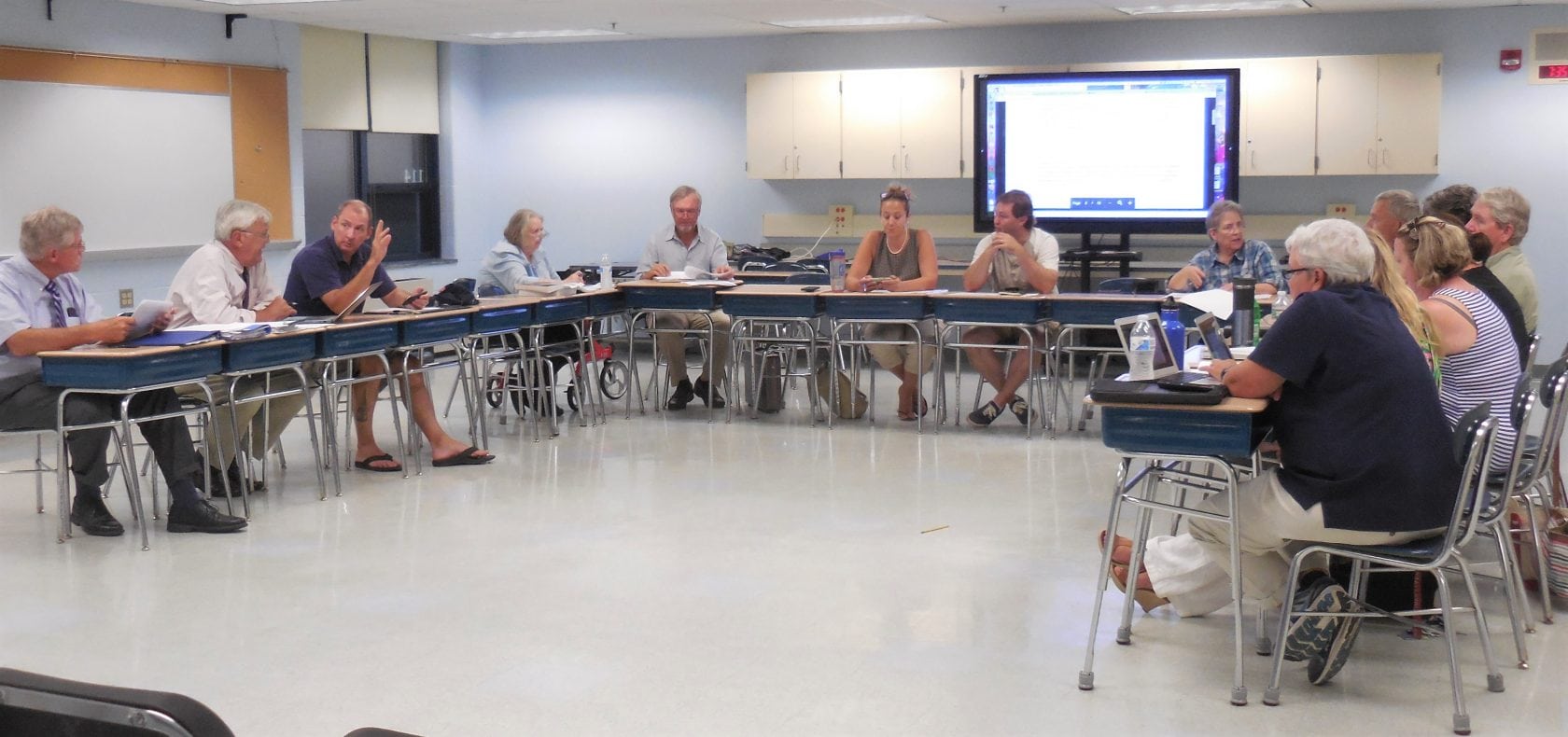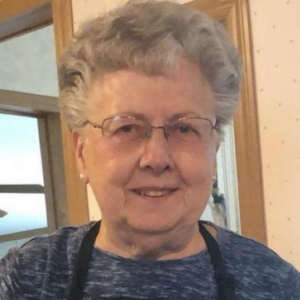
The Gateway facilitated discussion reaches consensus on school committee composition. (Photo by Amy Porter)
HUNTINGTON – After a decade of debate, and three or four failed attempts to change the Gateway Regional School Committee composition to reflect the requirement of “One Person, One Vote,” the facilitated discussion group charged with trying again came to a fairly quick consensus on Thursday.
The Department of Elementary and Secondary Education (DESE) requires that regional school committee composition reflects “One Person (One Man), One Vote,” which ensures that every school committee member represents approximately the same percentage of the district’s population.
Currently, the regional school agreement has historic representation attached to each of the towns, which do not necessarily reflect the population in those towns. Huntington, Chester and Russell each have three School Committee members; and Blandford, Middlefield and Montgomery each have two, totaling 15.
The facilitated discussion, a planning group of town officials, school officials and school committee members facilitated at this meeting by retired superintendents Jay Barry and Mac Reid of the Massachusetts Association of Regional Schools (MARS), is tasked with revising the regional agreement. At its last meeting on July 18, five options for school committee composition were presented.
On Thursday, the group quickly narrowed down the list to the two options most palatable to the committee members. The first, option three, was to elect members in district-wide elections every two years with residency requirements. According to Mac Reid at Thursday’s meeting, the school committee composition would not have to be changed in this option. At the previous meeting, it was suggested that for this option, each town would elect two members.
This option would satisfy One Person, One Vote, because each school committee member in every town would be elected by the entire district. Gateway Superintendent Dr. David B. Hopson said this was one of the options considered ten years ago.
The second option discussed would also retain the current composition of the committee by weighing votes, meaning each person would have one vote, but it would be given a percentage weight according to the population that person represented. For example, the weight of the two representatives in Middlefield, which has a population of 530, would be .5 each, whereas the weight of the two representatives in Blandford, with a population of 1,253, would be 1.2 each. In this option, school committee members would be elected at town elections, as they are now.
Huntington Selectman Darlene McVeigh, who also serves on the school committee, asked how often the weighted votes would have to be revised.
Jay Barry said most commonly they would be revised every ten years, based on census numbers. He added that regional agreements are generally revised every ten years as well.
Reid asked whether the group was choosing between these two options.
Huntington School Committee member Melissa Nazzaro said she thought the weighting was extremely complicated.
Reid said he worked in a community for 20 years with weighted votes, and they never had a problem. Barry said he worked with weighted votes for 18 years, and they only had to calculate it about three times a year, such as in voting for the budget, choosing a superintendent, or to establish a quorum.
Huntington School Committee member Aaron Welch said it seemed to him that option three, to elect school committee members in district-wide elections put more of a burden on the voters; and option four, weighted votes, on the school committee.
McVeigh said she thought district-wide elections would put more of a burden on people who want to be on the school committee. Chester Select Board member John Baldasaro agreed, adding that they would have to run in six towns. Other comments suggested that district-wide elections could turn it into more of a popularity contest.
“I think most of the town officials are in favor of option four, weighted votes,” Hopson said.
Montgomery Selectmen Dan Jacques agreed, but said he still thinks there is something fundamentally flawed in solving One Man, One Vote by making committee members votes unequal. Nonetheless, Jacques joined the majority in voting for option four.
Reid said the towns could have as many representatives as they wanted in this option, and the group should decide how many seats each town should have.
“It’s not all about the votes, but the voices at the table,” Barry said.
Welch said he would be in favor of keeping the same number of school committee members from each town.
“The least we change, the better,” agreed Baldasaro. A vote was then taken and passed to retain the same number of seats.
Work will now continue on the rest of the regional agreement, which the group agreed to vote on section by section, before coming up with a document approved by a super majority of the committee. That document will go to Christine Lynch of DESE for review, and then through state and local legal departments. The last step is a vote of approval by all of the six member towns at their town meetings.








